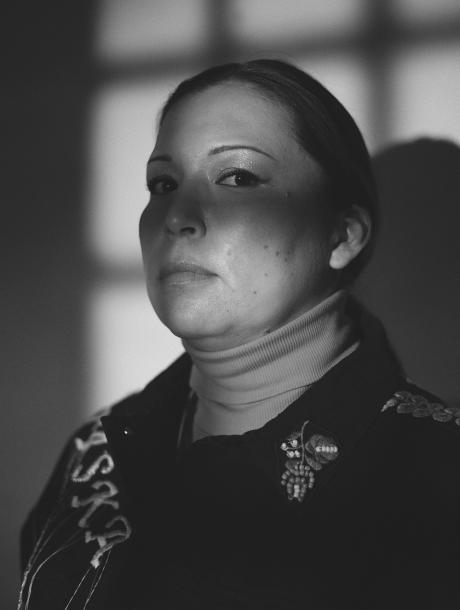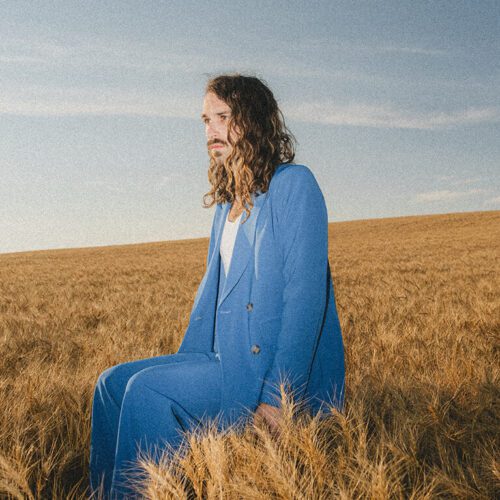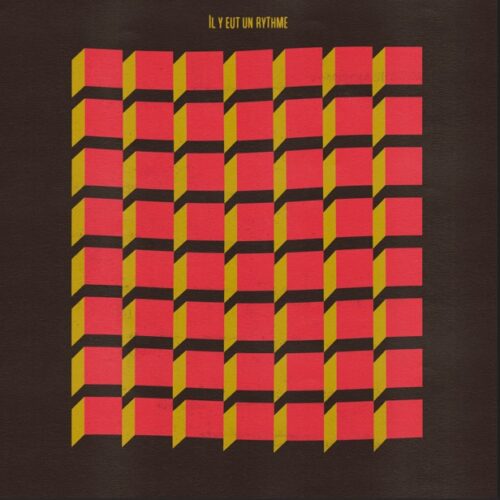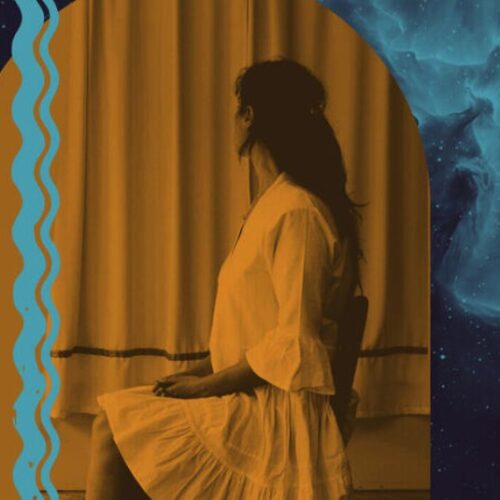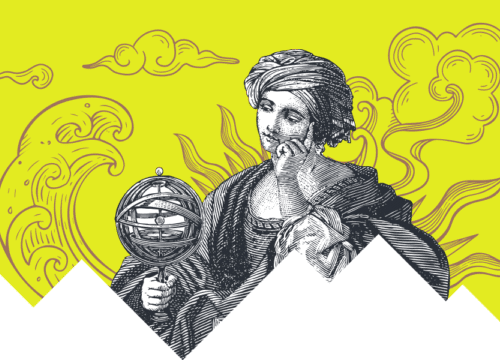Additional Information
Having released her second album Waska Matisiwin last spring, an album that literally took her beyond the network of the Atikamekw community from which she originates, Laura Niquay makes music and songs to reach out to different First Nations communities, but also to those who are not part of them. The sweetness of her sandy voice and her unique style bordering on indie-folk transport us through her songs into the stories of her past and some of the realities that the Indigenous communities live. PAN M 360 spoke with Niquay for more insights.
PAN M 360: First of all, what inspires you to write?
Laura Niquay: Most of the time, I have to be in nature or in my community of Wemotaci to be productive. Even when I’m there, sometimes I can compose in five minutes, but other times it can take me much longer. It really depends on how I feel.
PAN M 360: Does coming from a musical family imply a certain pressure to continue in this way, or did it come naturally?
Laura Niquay: It really came naturally over time. My father bought me my first guitar when I was 10 years old and I started playing when I was 11. It wasn’t until I was 16 that I started singing and writing.
PAN M 360: It’s only recently that we’ve seen a greater openness to First Nations music. Were you afraid of not reaching such a large audience by singing in Atikamekw?
Laura Niquay: No, it’s a language like any other language in the world. It is the music of the world. It’s easier for me, especially at the beginning, to sing in my mother tongue. Moreover, I have always sung my own compositions, I do not sing the songs of other artists. I will never be an interpreter, I will never be able to. It stresses me out too much. So I prefer to sing my own compositions and to do a summary in French of each of them in the shows. I will always explain the theme of the song before I sing it.
PAN M 360: Your most recent album Waska Matisiwin was on the long list for the 2021 Polaris Music Prize. What was your reaction?
Laura Niquay: At first, I had no idea what the Polaris Prize was. However, when I met Louis-Jean Cormier, he explained everything to me and I finally understood that it was prestigious. Louis-Jean had already won this award in 2010. I had a chance to win, but unfortunately my album was not selected among the 10 best albums, the short list. At least, I was in the best albums in Canada. That’s great for me because I consider it my first real accomplished and professional album. Waratanak was more independent and it was mostly about learning how to produce music. Waska Matisiwin is really my biggest accomplishment and I am very proud of this album.
PAN M 360: Darker themes such as suicide and addiction are present on your album. Have you had any comments about these?
Laura Niquay: Yes, really! At the Festival en chanson de Petite-Vallée, many people came to see me after the show and were very moved by my songs. They understood perfectly what I went through, because I tell a lot of my life story through my songs. People were so touched that they told me that I was their favourite of the festival. I can understand because I deal with more specific and difficult subjects. I tell the themes of my songs in a very intimate way. The subject of children who have children in our communities, who don’t have time to live their adolescence, is one that touches me a lot. I still see young girls who get pregnant, or young boys who become fathers, who don’t have time to live this period that is adolescence. I am doing a lot of awareness-raising on this subject right now. It’s really important to raise awareness among young people as well.
PAN M 360: What are the reasons for the three years it took to finalize this second album?
Laura Niquay: It would have taken two years, but with the pandemic, it delayed us and it was like that for everyone. In fact, I liked it. It allowed me to take a step back in my life and get better at therapy. I’ve been to five therapies in my life. I really needed to get the balance I needed in my job and in my personal relationships too. I was able to really work on elements that I didn’t like as much and produce an album that I liked 100%.
PAN M 360: Waska Matisiwin is very eclectic. Each of the songs is unique. Did you want a guideline for the whole album, or rather to give importance to each song?
Laura Niquay: There is no guideline. I asked, for each of the songs, people around me what they liked to hear, so, like “Nicim” with the singer Shauit, it’s about my brother who went through a depressive and suicidal period. It’s not necessarily a sad song, but rather a song of encouragement to not give up. I asked him what kind of music he likes to listen to and his answer was hip-hop, reggae, and he likes the sound of electric guitars in the background. It’s really important to listen to the people around you and know what they like to listen to. I made sure to make songs to please my audience. That’s very important to me.
PAN M 360: So it is really your entourage that oriented your album?
Laura Niquay: Yes, there is also everything that I’ve heard since I was very little. My album is the result of all this mixture.
PAN M 360: What can we expect from your concert at the First Peoples Festival?
Laura Niquay: There will be nothing extravagant. There will be 12 classical guitar players. It’s going to be a little different from what I usually do, but since I grew up with the sound of classical guitar, I immediately wanted to get involved in this project. It’s going to be very special.
PAN M 360: Which song do you prefer to sing, and why?
Laura Niquay: The second song for sure! It’s called “Moteskano”, which means “The paths of our ancestors”. It’s a song about passing on our culture, and that it should never stop. I had to walk a long way to get to where I am today. Otherwise, I also like the twelfth, which is very national. It’s really important to support the elders too, to respect them. It’s about us, the First Nations, but also the non-Indigenous people, who are a nation too. We are all human.
PAN M 360: What are your next projects?
Laura Niquay: In a year and a half, I should produce another album, but it will probably have a blues background because I would like to explore this style more deeply. The First Nations have done well in this style, so I want to bring out a kind of Indigenous blues. In the meantime, it will be full of concerts in the next few months. I’m going to take advantage of it to do my first tour and I’m looking forward to it. I wish myself good health and a long life.
